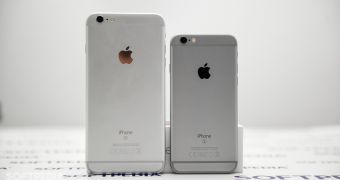Apple is reportedly working to improve the encryption system used on the iPhone up to the point where nobody would be able to break into the device and extract user information.
The report comes via the New York Times, who writes that, although news of such a project emerged only a couple of weeks after the company was ordered to help the FBI hack an iPhone, work on upgraded encryption for its devices had started even before the San Bernardino attacks.
Little is known about how Apple plans to improve security of the iPhone, but it’s believed that the company intends to close the loophole that the government is trying to force it to exploit in order to access content on the device used by one of the San Bernardino terrorists.
A California judge ordered Apple to develop custom software that would provide unlimited passcode entry attempts for the FBI and thus allow the feds to brute-force hack the phone. Apple, however, has opposed the ruling, claiming that developing a backdoor could put all users at risk and set a dangerous precedent that could allow the government to break into other devices in the future.
No other San Bernardino cases
While iPhones are fully encrypted, each device comes with a built-in troubleshooting mode that allows Apple to update the operating system should the company need to repair a broken phone and repair software issues that prevent it from booting. This is how the government wants to force Apple to break into the San Bernardino iPhone, and it’s also believed that this is actually the loophole that the company is planning to block with its new encryption system.
With this supposedly being the only way to break into the iPhone, Apple could thus make the iPhone impossible to hack, so future FBI demands in this regard would be pretty much run into a stone wall, so the company wouldn’t have to compromise the security of the device.
Apple CEO Tim Cook has warned that, once such a backdoor is created, it could fall into the hands of bad guys too, so instead of helping the FBI access terrorist data, criminals could actually use the exploit against the United States to monitor unencrypted communications and steal data.

 14 DAY TRIAL //
14 DAY TRIAL //